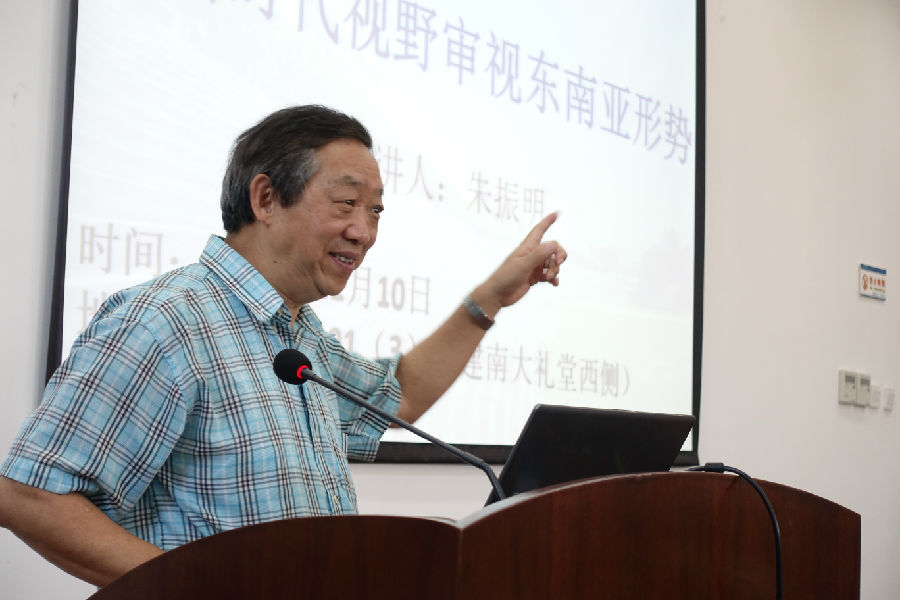
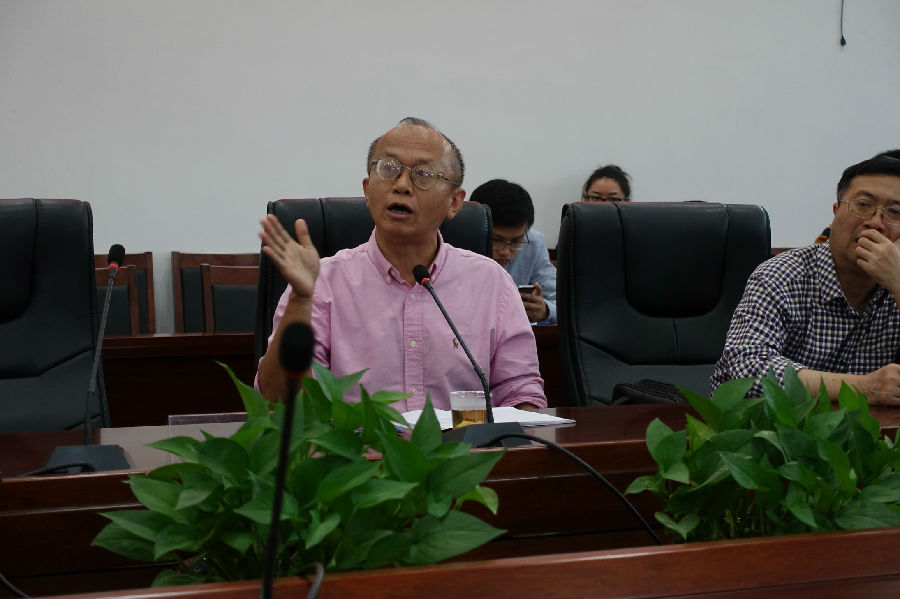
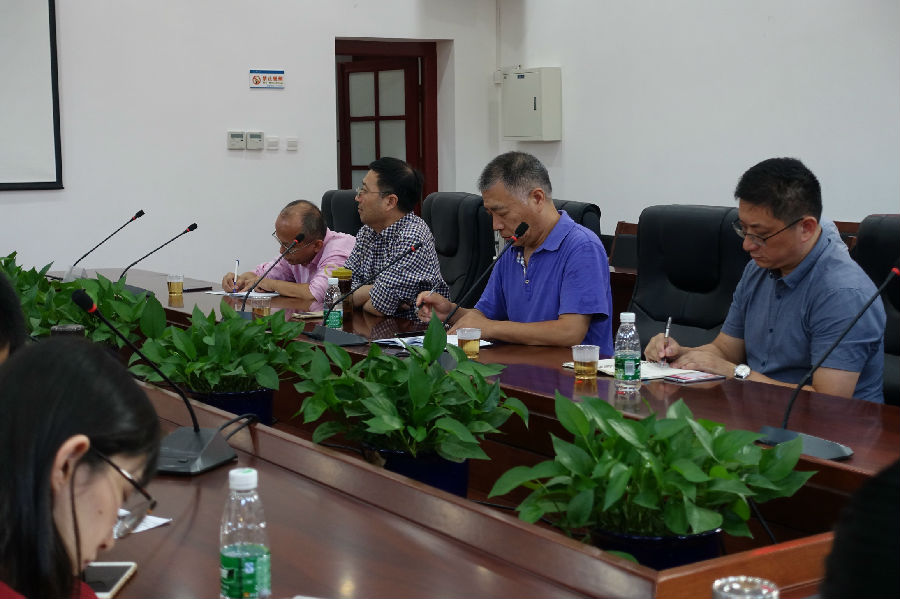
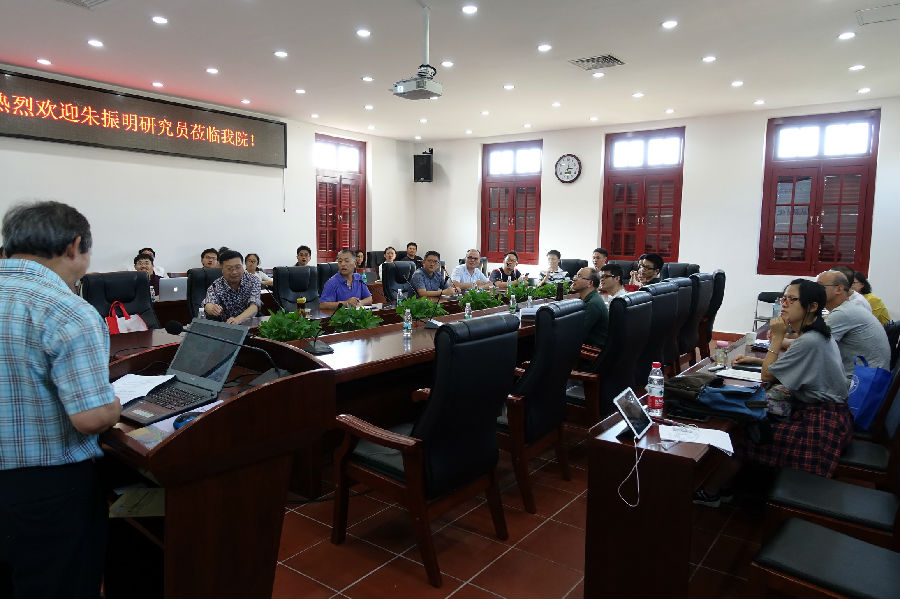
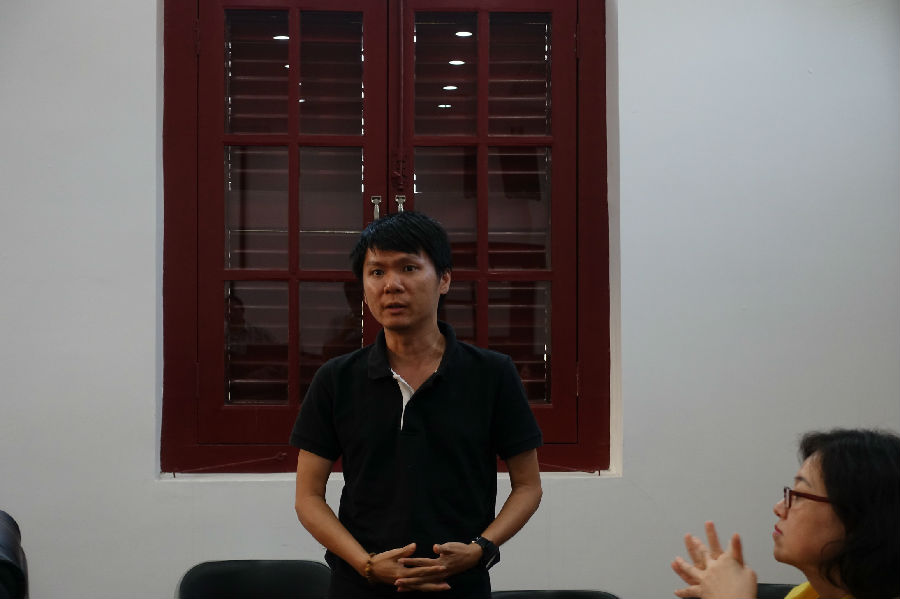
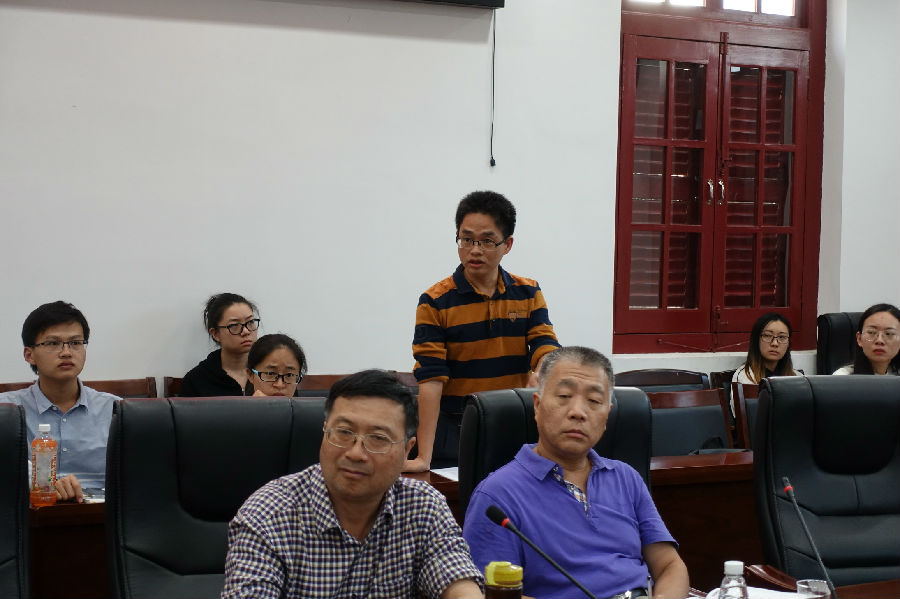
On November 10th, Professor Zhu Zhenming from Yunnan Academy of Social Sciences visited Research School for Southeast Asia Studies of Xiamen University and delivered a speech “Examining the Situation in Southeast Asia in a New Era”.
Professor Zhu Zhenming first pointed out two kinds of changes in the situation in Southeast Asia: the first major change happened after U.S. President Trump’s visit to China from November 8th to 10th, and $253.5 billion contract was signed between China and the U.S., which indicated that Trump no longer emphasized the difference of ideology in the Sino-US relations, but emphasized the significance on trade.
Professor Zhu argued that the new changes in Southeast Asia should be observed from the following aspects: the impact of the summit meeting between China and the United States on Sino-US relations; the impact of Sino-US relations on Southeast Asian countries; the adjustment of US policy toward China has changed the relationship between Southeast Asian countries and China. In particular, Professor Zhu reminded the audience that “we should not only focus on Southeast Asia in the study of Southeast Asia, but we should grasp the overall change of international relations in the global situation.” The second major change was that a number of new studies had been put forward by the 19th National Congress of Communist Party of China (CPC). For example, the importance of “culture” to a country was emphasized in the report in the 19th National Congress of the CPC. “We should pay attention to the close relationship between diplomacy and the national character of a country when we study the diplomacy of Southeast Asia. Chinese President Xi Jinping has proposed to establish a new international relationship, emphasizing the ‘fairness’ and ‘justice’ in international relations, and respecting the choice of the autonomous path of each country; our foreign policy has transformed from independence to the foreign policy of safeguarding world peace and promoting common development. This major change needed our attention.”
Finally, Professor Zhu believed that, first of all, the situation in Southeast Asia was generally stable, but the local trouble was constant; secondly, the economic development of Southeast Asia was remarkable, although the total economic amount was small; the continuous expansion of the impact of China was a topic often discussed in the East and South Asia countries now. The combination of quantitative and theoretical analysis was very important. Last but not least, “we should pay more attention to deepening the relationship with the surrounding countries and have new research perspectives in the new era.”